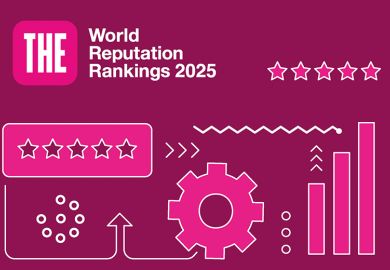Governments the world over seem to be constantly banging the drum for universities to be carving out closer links with industry in a bid to boost their economic impact.
But are countries that have traditionally lagged behind on university-business links catching up with those that have always taken the lead in this area?
The latest data from the industry income pillar of Times Higher Education’s World University Rankings suggest that the performance of some countries on this aspect of higher education may be converging.
According to an analysis of the pillar scores over the past four years by country, some of the nations whose universities have always tended to do well on this measure have been falling back relative to others.
For instance, South Korea, Germany and China were among nations whose median scores in industry income dropped the most between the 2016 and 2019 editions of the ranking.
Looking at the change in mean scores across some key nations, there also seems to be a trend towards convergence in performance.
For China much of this change can be attributed to the large number of universities that have entered the ranking over that period, and which naturally have lower scores and therefore pull down the average. However, the same explanation is unlikely to account for the shift in other countries.
So what could be the reasons for this trend?
In Europe, there are grounds to believe that more governments are tying evidence of universities’ links with business to allocations of core funding, according to Thomas Estermann, director for governance, funding and public policy development at the European University Association.
“What we can see from our work is that it’s quite common to have in national funding for universities an indicator that incentivises universities to look for external funding, and that includes funding from business and industry,” he said.
Mr Estermann added that there were other ways that European universities were being encouraged to strengthen links with industry, such as through the content of “performance contracts” with governments or extra funding streams like England’s Higher Education Innovation Fund. Added to this, some European Union funding had also moved towards boosting economic impact.
Asked whether public funding constraints on European governments meant that they were keen on pushing universities towards other sources like industry, Mr Estermann said that it was certainly one factor.
“I would say the whole debate about the need to have more efficiency, more effectiveness – and also to a certain degree replace public funding – plays an important role,” he said, but “it might not be the only driver” as policymakers might view university-industry links as important in their own right.
Despite these trends, there are still plenty of European countries that lag behind on industry income – the UK being one of them.
Meanwhile, the Netherlands, whose institutions have always scored highly on the industry income pillar, seems to have consolidated its position with a number of its universities scoring higher in 2019 than in 2016 (its mean score fell slightly but its median rose).
Bart Pierik, public affairs adviser for the Association of Universities in the Netherlands, said that Dutch institutions “had been forced to look for research funding elsewhere” due to cuts in central government funding but “at the same time there has also been a growing ambition to…cooperate more with private business” as well as charities and local government.
He added that the Netherlands’ universities of technology always had a strength in working with industry, but the difference in the past few years was that other universities were also looking to work more with external funders.
“The technical universities have always been very good at it…but you see this increasingly in all universities now,” Mr Piernik said. “Also we have a new generation of researchers more used to looking at society as a whole and participating in society rather than doing research behind a desk.”
Find out more about THE DataPoints
THE DataPoints is designed with the forward-looking and growth-minded institution in view
Register to continue
Why register?
- Registration is free and only takes a moment
- Once registered, you can read 3 articles a month
- Sign up for our newsletter
Subscribe
Or subscribe for unlimited access to:
- Unlimited access to news, views, insights & reviews
- Digital editions
- Digital access to THE’s university and college rankings analysis
Already registered or a current subscriber? Login








